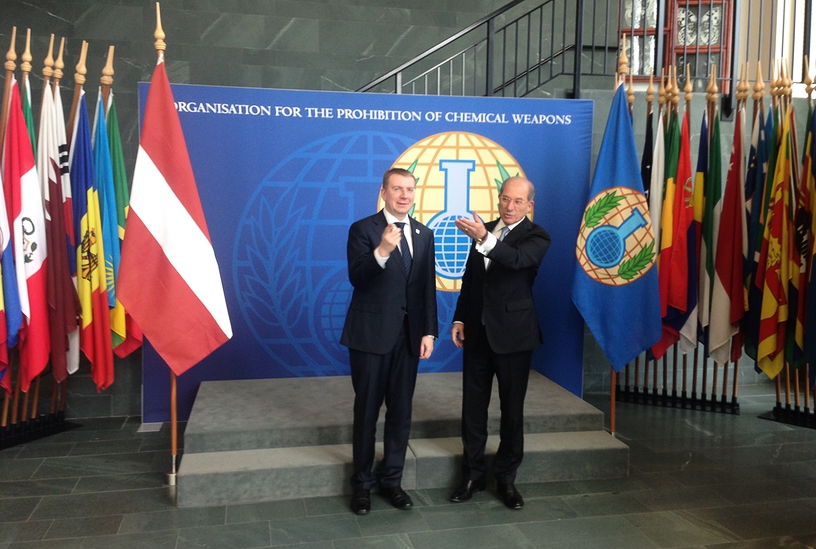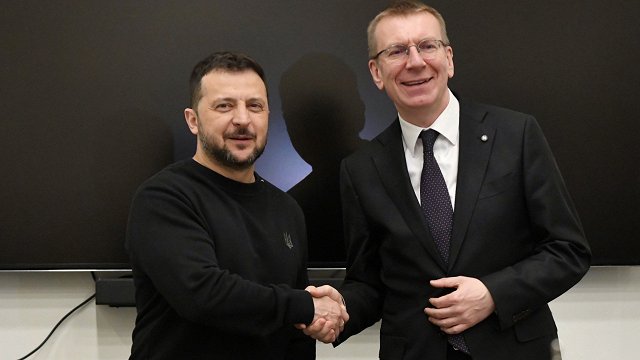According to approximate estimates, around 40,000 units of chemical weapons remain on the seafloor, much of the stockpile in unknown locations. After the Second World War the Soviet Union dumped the masses of mostly Nazi-origin weaponry into the Baltic, without bothering to follow up on what might happen to it decades later.
Experts believe the weapons constitute a ‘ticking time-bomb’ for an environmental disaster that will inevitably occur when the shells containing the extreme concentrations of deadly toxic substances corrode and are unable to contain them anymore.
“Though we understand that chemical weapons sunk under the sea in the past are an issue outside of the OPCW’s mandate, this remains an important matter for Latvia, as there are critical environmental risks in light of the amount of chemical weapons in the Baltic Sea as a whole. This question needs to be entrusted to the OPCW,” Rinkēvičs stated at the meeting.
Rinkēvičs traveled to the Netherlands’ city this week to meet with OPCW general director Ahmet Üzümcü, where they discussed the ongoing elimination of current chemical weapons stockpiles, including in Syria.
The MFA agreed that the OPCW must continue its activities in eliminating the chemical weapons stockpiles declared by all member states. He stressed how important it was that Syria destroy not just its current stockpiles, but also all of its chemical weapons manufacturing facilities.
At the same time Rinkēvičs said he was convinced that it was time to begin serious discussion on the OPCW’s future mission goals for when the declared caches are neutralized.
Next week the world remembers the first use of chemical weapons during World War I exactly a hundred years ago. To remind the world of the horrors of this kind of warfare, the OPCW set up an exhibition about the use of chemical weapons during WWI at the embassies of Latvia, Russia, Poland and Germany.
The 1997 Convention on Chemical Weapons is the sole global instrument prohibiting all kinds of chemical warfare, including the development, manufacture, stockpiling, transporting and use of chemical weapons, providing for strict verification mechanisms. Altogether 190 countries have signed the Chemical Weapons Convention.































